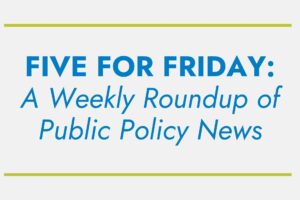Despite a delayed start and a shortened timeline, the 2025 Virginia General Assembly delivered a highly productive session. Lawmakers tackled a broad spectrum of issues with focus and intensity, advancing key legislation that will shape the Commonwealth’s future across housing, infrastructure, education, and beyond.
A Brief Look at the Numbers
Your Delegates and Senators introduced 3,107 bills and resolutions over the 45-day General Assembly Session. Of these, 1,535 bills and resolutions were passed. Governor Glenn Youngkin used his power to amend or veto a large number of bills, ultimately enacting 727 bills and vetoing 196.
Your Realtor® Government Affairs team was hard at work this session advocating, negotiating, and delivering results. We successfully stopped 22 harmful bills in their tracks, reshaped 25 others to better protect your interests, and helped pass 24 pro-real estate measures that support your business and your clients. When the stakes were high, we showed up — and made it count.
Contention Remains
The 2025 session unfolded under divided leadership, with a Democratic-controlled General Assembly, holding a 21–19 majority in the Senate and a 51–49 majority in the House, working alongside a Republican governor. Layered on top of that was the uncertainty surrounding the early months of the second Trump administration.
As an election year in Virginia , with the Governor, Lieutenant Governor, Attorney General and the 100 members of the House of Delegates up for election, political tensions were high. National issues frequently spilled into state-level debates, amplifying partisan divides. While key legislative work was accomplished, the General Assembly may reconvene later in the year to address potential budgetary impacts tied to ongoing federal workforce and program cuts.
New Laws
The following bills were selected for their potential impact on your business and the clients you serve. Each of these new laws is effective July 1, 2025, unless otherwise noted.
If you want to read the full text of the legislation, the bill number provided is a hyperlink to the text of the bill as it is enacted into law.
The Realtor® Bills (These bills were included in the Statewide Realtor® Agenda.)
Requiring Buyer/Tenant Representation Agreement Prior to Showing
HB 1684 / SB 1309: Requires a brokerage agreement to be signed between a prospective buyer or tenant and real estate licensee prior to showing property to the prospective buyer or tenant.
The 2024 National Association of REALTORS® (NAR) settlement agreement requires NAR members to implement numerous practice changes. Included in these practice changes is the requirement that all Realtor® MLS participants working with a buyer enter into a written agreement before the agent tours any home with a buyer. While Virginia has had written buyer and tenant agency agreements for many years, Virginia law previously included an exemption to allow the showing of properties to a prospective buyer or tenant before requiring a written agreement. This legislation eliminated that exemption and expanded the NAR requirement to apply to tenants as well while maintaining a few specific carve-outs to ensure Realtors® are able to continue practicing effectively.
Specifically, the new law does not require a brokerage agreement prior to preparing property-specific materials for a prospective client with the intent of obtaining a brokerage relationship. Also, the law clarifies that a licensee engaged by a seller or landlord is not required to enter into a brokerage agreement with a prospective buyer or tenant to show the property when the showing is done in accordance with a brokerage agreement entered into with a seller client or landlord, such as during an open house or showing request from an unrepresented buyer or tenant. Finally, to resolve any ambiguity, the bill defines “showing property” to include physically obtaining access and taking a prospective buyer or tenant to a property; providing a live, virtual tour to a prospective buyer or tenant who is not physically present; responding to questions or providing information about such property that is not of public record while at the property; or otherwise providing brokerage services while at the property.
Studying Deed Fraud
HB 2396 / SB 1270: Convenes a state advisory group to investigate the prevalence of deed fraud, including notary fraud, seller impersonation, owner impersonation, and fraudulent lien filing that leads to scams where individuals sell property that they do not lawfully own (often called vacant land scams). The advisory group will report to the General Assembly on necessary legislative and regulatory changes to combat deed fraud by November 1, 2025.
Resale Disclosure of Common Interest Community Insurance Deductibles
HB 1704 / SB 808: Requires the resale certificate form to include a statement alerting a potential buyer that the governing documents may make a homeowner responsible for payment in part or in full of the Common Interest Community’s deductible on a claim made by the homeowner against the insurance policy.
Increasing Virginia Real Estate Board (VREB) Member Qualification
HB 2210 / SB 866: Increases the qualifications required of persons appointed to sit on the Virginia Real Estate Board. Each of the Board members required to be licensed real estate brokers or salespersons would be required to be actively engaged as a licensee for seven consecutive years (raised from five years). The legislation also requires each member to have acknowledged ability in the profession as evidenced by possessing at least one of the following qualifications: (a) experience in real estate credentialing or certification, (b) certification by the Board as a real estate instructor, or (c) training or experience in the adjudication of other real estate licensees. It would also require that one licensee on the Board have proficiency and experience in residential property management.
Eliminating Real Estate License Transfer Fees
HB 1653 / SB 785: Prohibits the VREB from charging a fee to a real estate licensee for the transfer of the licensee between offices within a licensed real estate firm, including from the firm’s primary place of business to one of its branch offices or from a branch office to another branch office under the same primary place of business.
Landlord-Tenant Related Laws
- HB 1623 / SB 830: Makes the Eviction Diversion Pilot Program a permanent program by renaming the program, extending the program statewide, and removing the July 1, 2025, sunset date. Originally passed as a COVID-era safeguard to protect tenants from eviction, this program provides for court-ordered payment plans in certain cases of unlawful detainer.
- HB 1867 / SB 1043: Amends the Virginia Residential Landlord and Tenant Act (VRLTA) to require landlords who own more than four rental units to provide written notice of nonrenewal to any tenant no less than 60 days prior to the end of the rental agreement term.
- HB 2218 / SB 1356: Prohibits a landlord subject to VRLTA from charging a tenant any fee for the collection or processing of any payment of rent, security deposit, or any other fees, unless the landlord offers an alternative method of payment that does not include additional fees.
- HB 2151: Revises the definition of a “community land trust” under the VRLTA, clarifying the legal framework for such entities.
- HB 2430: Clarifies the fee disclosure statement requirement introduced last year regarding how charges to the tenant are to be displayed on leases. Now, beginning on the first page of VRTLA leases, landlords must itemize all charges to the tenant that comprise of (i) the security deposit, (ii) the amount of rent due per payment period, and (iii) any additional one-time charges due prior to the commencement date of the rental agreement or that will be included in the first rental payment, such as move-in fees. The bill also requires leases contain the following statement immediately above such itemized list: “No additional security deposits or rent shall be charged unless they are listed below or incorporated into this agreement by way of a separate addendum after execution of this rental agreement.” The bill applies to rental agreements that are entered into, extended, or renewed on or after July 1, 2025.
- SB 884: Allows a tenant who is a victim of family abuse, sexual abuse or other criminal sexual assault, stalking, or human trafficking to terminate a rental agreement if the tenant has obtained a preliminary protective order or if a warrant, summons, information, or indictment charging any such crime has been issued.
Real Estate and Property Rights
- HB 1706 / SB 1210: Adds a provision to the residential property disclosure statement (buyer beware list) advising purchasers to exercise due diligence to determine if a property is in an airport noise overlay zone.It also provides resources on the form directing individuals where to find such information provided by the Department of Aviation.
- HB 1871: Clarifies that a transfer on death deed is an inter vivos deed (i.e., a legal document used to transfer real property from one person to another during the grantor’s lifetime, as opposed to transferring property upon death as done through a will), ensuring that real property transfers made this way are legally valid upon the owner’s death..
- HB 2110: Amends the Resale Disclosure Act to prohibit a Common Interest Community from requiring the purchaser’s name prior to preparing the resale certificate, streamlining the request process.
- HB 2309: Directs the Department of Health to develop guidance directing local health districts and local health departments to evaluate and recommend solutions to problems with a valid onsite sewage system or private well permit prior to issuing a revocation for such valid onsite sewage system or private well permit.
- HB 2671: Amends the minimum requirements for septic system inspections in connection with real estate transactions and adds minimum requirements for septic system inspectors in conducting such inspections. Defines a complete inspection as an inspection of all readily accessible and openable components, including septic tanks, pump tanks, distribution devices, treatment units, control panels, and dispersal fields.
The inspection shall also include any components specified in the operation permit and any vegetation, grading, or signs of harmful water entry that may impact septic system function. Includes pumping of septic tanks in requirements for a complete inspection; however, clients may decline this in writing. Requires inspectors to submit a written report within 10 business days identifying all inspected components, specifying any components not inspected with reasons for their omission, and documenting adverse conditions such as defective or damaged components.
Planning, Zoning, and Housing Development
- HB 1659: Authorizes localities to create a Foundation and Soil Management Fund to grant funds to property owners for foundation management and soil settlement repairs and prevention on previously developed lands.
- HB 2137 / SB 1011: Authorizes the City of Falls Church to establish an affordable dwelling unit program, enabling the city to address local housing affordability.
- HB 2153: Directs the Department of Housing and Community Development (DHCD) to develop a document describing zoning and site plan options, including alterations and waivers, that a locality may consider when implementing an ordinance to stimulate affordable housing on property owned by a property tax-exempt nonprofit organization. Requires the document to be published no later than December 31, 2025.
- HB 2533: Clarifies that local comprehensive plans may include the use of accessory dwelling units as part of residential development.
- HB 2660: Shortens timeframes for local government approvals of subdivision plats and site plans and calls for a workgroup to review and recommend improvements to the subdivision and site plan approval process.
- SB 1263: Allows a locality to provide for the reimbursement of water and sewer connection fees and costs in connection with any new residential development.
Taxation and Fiscal Policy
- HB 2029 / SB 816 Updates the local real property tax exemption and deferral program for elderly and disabled individuals. The new law allows a locality flexibility in the establishment of installment plans or other compromise measures for the repayment of delinquent taxes, penalties, and interest assessed by the locality and incurred before becoming eligible for an exemption or deferral. Localities are also allowed to provide a prorated exemption or deferral for the portion of the taxable year during which the taxpayer would have qualified for such exemption or deferral but had not yet filed an application.
- HB 2245: Directs the Department of Taxation to develop a uniform income and expense reporting form and process for the assessment of affordable rental housing properties. Requires development of the form by September 1, 2025.
Consumer Protection and Professional Licensing
- HB 1940 / SB 1188: Directs the regulatory boards within the Department of Professional and Occupational Regulation (DPRO) to promulgate regulations allowing the issuance of a license or certification to any applicant who holds a comparable international license or certification issued by another country.
- HB 2195: Prohibits the offering of services as a professional mold remediator without holding a mold remediation certification from a nationally or internationally recognized certifying body for mold remediation. Requires all professionals to comply with pertinent standards in conducting mold remediation. Directs DPOR to study the state of the mold inspection and mold remediation workforce in the Commonwealth to determine whether the licensure or certification of mold inspectors and remediators would benefit the public health, safety, and welfare and submit a report by January 1, 2026. This bill contains an emergency clause and is in effect immediately.
- HB 2557 / SB 993: Clarifies that the provisions related to real estate brokers, salespersons, and rental location agents shall not apply to any person employed by a licensed real estate broker for and on behalf of the owner of any real estate or the improvements thereon that the licensed broker has contracted to manage for the owner if the actions of such employee are limited to (i) accepting and signing broker-approved rental agreements, state or federal required disclosures, and any documents required for compliance with Virginia Fair Housing Law related to such rental transaction and (ii) accepting security deposits, periodic rent, and other payments contracted for in the rental agreement for such real estate.
These bills have been selected as having an impact on the real estate industry and real estate consumers. For information on other enacted legislation, check out the Virginia Legislative Information System, or reach out to the NVAR Government Affairs Team with your questions.



